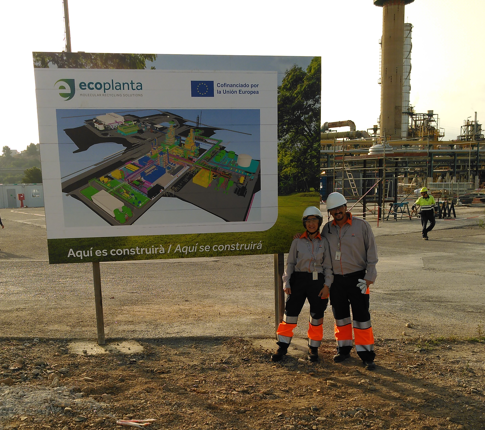
The plant uses non-recyclable materials rejected by sorting centres to produce circular chemicals and advanced biofuels, thereby revolutionising municipal solid waste management. This ground-breaking initiative aims to reduce landfill waste, cut carbon emissions and promote the sustainable use of resources. Recycling these materials will also help reduce dependencies on some essential materials and therefore increase Europe’s autonomy.
The Ecoplanta project leverages innovation to tackle a vital environmental challenge. The project received €106 million in funding from the Innovation Fund, one of the world’s largest investment programmes for net-zero and innovative technologies financed by EU Emissions Trading System revenues. It anticipates making a significant impact towards the European Green Deal’s targets and Europe's green transition. During its first ten years of operation, it is expected to reduce greenhouse gas (GHG) emissions by a staggering 3.4 million tonnes of CO2 equivalent. This is more than one-third of the GHG emissions produced by Spain's entire solid waste disposal sector in 2019.
Ecoplanta’s innovative gasification technology, capable of handling a wide range of waste compositions, makes the project highly replicable at other European sites and therefore offers the potential to reduce waste and GHG emissions on a much larger scale. This adaptability is not only environmentally friendly, but also beneficial for the economy. By processing locally sourced municipal solid waste, energy that would otherwise be needed to transport raw materials to distant biofuel facilities is being saved. Using carbon and energy stored in municipal solid waste, the project reduces emissions and unlocks waste’s full potential as a valuable resource.
The project will produce methanol, a key building block for the chemicals and fuels market. Furthermore, it will drive economic development in the region towards the circular economy, generating employment, boosting the local economy and contributing to modernising industrial production centres while maintaining the entire productive industrial fabric of the area and, thus, the permanence of the industrial activity.
As Ecoplanta evolves, it remains a symbol of innovation and sustainability, demonstrating how waste can be transformed into valuable resources while significantly reducing our carbon footprint. This project is not just a local success story; it also provides a global model for waste management solutions, showcasing how innovation, sustainability, and circularity can work hand in hand to build a more environmentally friendly and economically vibrant future.
Article published on 26 October 2023
- Start date
- 1 Nov 2021
- Project locations
- Spain
- EU contribution
- €106 379 783
